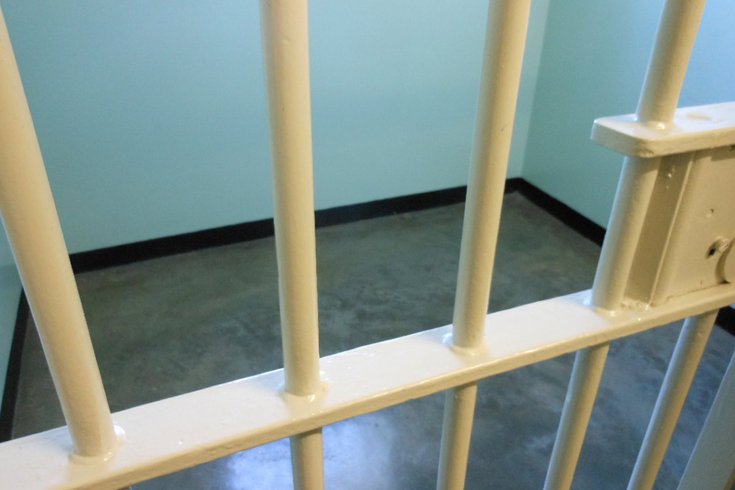
June 23, 2021
 MICHAEL COGHLAN/FLICKR CREATIVE COMMONS
MICHAEL COGHLAN/FLICKR CREATIVE COMMONS
Philadelphia prisons will now be required to develop a legally compliant schedule ensuring inmates get enough out-of-cell time. The city also must submit a report detailing its plans to resume pre-pandemic operations.
Philadelphia will pay $125,000 to settle a federal civil rights lawsuit claiming the city's jails did not comply with rules requiring that prisoners receive a minimum of three hours out of their cells each day.
The class action lawsuit, a backlash against extreme conditions at Philly prisons during the COVID-19 pandemic, was filed in April 2020 by 10 incarcerated people. It drew on consistent reports from Philadelphia prisoners who said they didn't receive adequate out-of-cell time on a regular basis.
The requirement of three hours had been stipulated by a court order in January of this year, amid a second coronavirus surge that led to new outbreaks among inmates in Philadelphia's four jails.
The lawsuit claimed that prisoners were being denied time to shower, make phone calls, get exercise or to be given sufficient relief from the psychological strains of confinement. The prisoners also said they were not given regular access to soap and hand sanitizer; shared facilities at the jails, such as phones, were not routinely disinfected; and suitable COVID-19 mitigation procedures were never put into practice.
As of this month, Philadelphia has reported 1,776 COVID-19 cases among inmates in the city's prison system, including 305 symptomatic cases and 1,471 asymptomatic cases. There has been one inmate fatality. The city's four jails hold about 4,837 inmates, a number that has declined approximately 40% since July 2015.
At the start of the pandemic, as asymptomatic spread became a significant concern in congregate settings like prisons, fear emerged among both inmates and corrections staff that COVID-19 would spread unchecked. At times, prisons dealt with outbreaks and implemented "shelter in place" policies that restricted movement.
The plaintiffs in the federal lawsuit argued that limited out-of-cell time may have contributed to the virus spreading in city jails, especially given the lack of hygienic protocols and supplies for inmates.
A partial settlement of the lawsuit reached earlier this month addressed several issues of hygiene – such as the provision of free soap, clean towels, the implementation of COVID-19 safety protocols and the opportunity to shower daily – but the question of out-of-cell time was not resolved until Wednesday.
The settlement allows the city to avoid a possible finding of contempt by the judge handling the case. A hearing had been scheduled for Wednesday prior to the settlement.
Several of the plaintiffs in the case reported suffering from medical conditions such as asthma, cancer, hepatitis C, vascular disease and other disabilities that put them at an elevated risk for serious complications from COVID-19.
The lawsuit argued that overall conditions at the jails have increased the likelihood that prisoners will contract COVID-19 and become seriously ill. The plaintiffs contended the Philadelphia Department of Prisons violated their Eighth Amendment right to be free from cruel and unusual punishment, their 14th Amendment right to due process and the Americans with Disabilities Act.
The city's settlement will result in equal payments of $62,500 to the Philadelphia Bail Fund and the Philadelphia Community Bail Fund, two nonprofits that pay bail for indigent prisoners who otherwise would remain behind bars because of inability to pay.
"We will use these funds immediately to free more people,” said Malik Neal, executive director of the Philadelphia Bail Fund. "But to be clear: We are not the solution to this problem. The solution is for local officials to take the necessary steps to end the human rights abuses in our jails."
Under the terms of the agreement reached Wednesday, the city has until July 12 to "make all reasonable efforts to increase out-of-cell times beyond those required by current Court Orders."
The goal of the settlement is to develop a new schedule that would provide 4 1/2 to 5 hours of out-of-cell time for all vaccinated units within the city's jails. Vaccination rates among inmates and correctional staff are confidential as part of the COVID-19 litigation, a spokesperson for the Department of Prisons said.
Other general housing units would aim for 3 1/2 hours of out-of-cell time per day. Inmates in quarantined units would get 3 hours per day and those in segregation units would get one hour per day.
"After over a year of living in dire conditions, including harsh lockdown conditions, we hope this substantial payment will convince the City to provide the out-of-cell time that is necessary for people's health and humanity,” said Su Ming Yeh, a representative for the plaintiffs and executive director of the Pennsylvania Institutional Law Project.
Failure to meet these benchmarks could result in the city facing further action in federal court. The city also will be required to submit a report detailing its plans to resume pre-pandemic operations.
David Rudovsky, an attorney representing the plaintiffs in the case, called the settlement funds for bail relief a fair resolution.
"It (provides) a measure of relief from overcrowded conditions by enabling release of persons awaiting trial, often on minor charges, who cannot afford to post the required bail, and by initiating a process in which the prison system can eventually safely return to pre-pandemic programming, visitation, and normal periods of out-of-cell time."